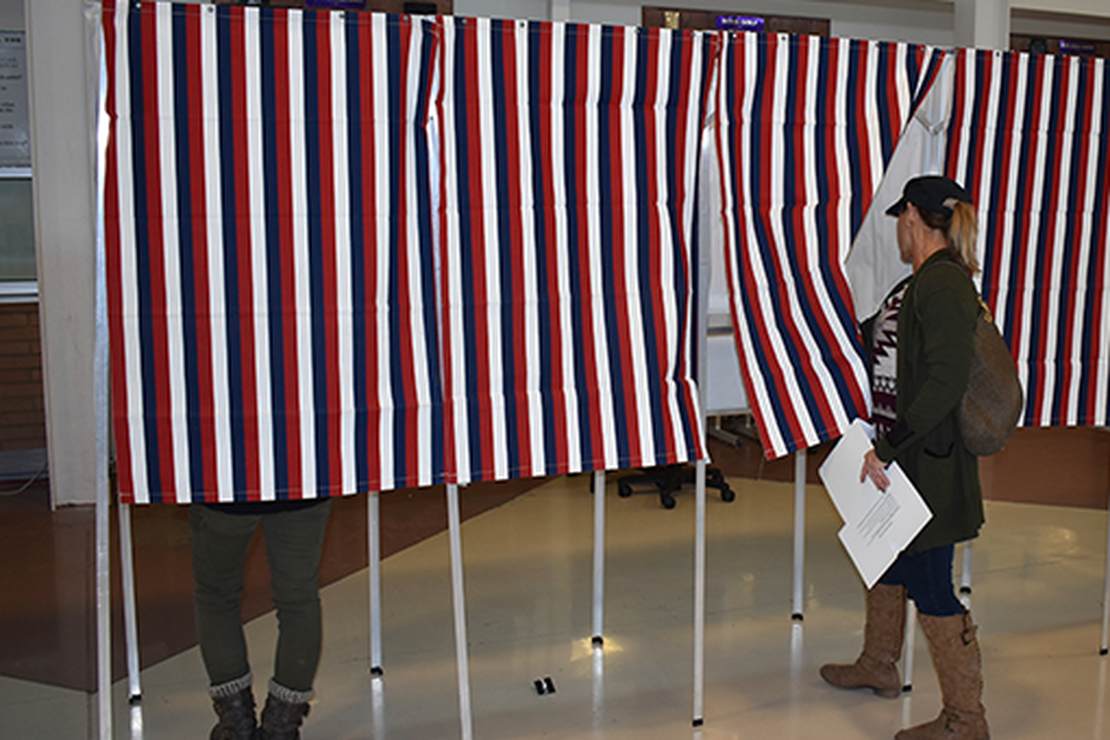At CPAC, I had the opportunity to speak with Saulius “Saul” Anuzis, a longtime Republican strategist and former Michigan GOP chair, about the National Popular Vote Compact (NPV), which he not only supports but is trying to get conservatives on board with.
I told him right off that I was skeptical of the idea, but that it’s an issue worth discussing, so I gave him the opportunity to make the conservative case for the national popular vote.
The problem with the current system, he explained, was that much of the outcome of presidential elections is easily predictable.
“You and I could sit down in three minutes and walk through all 50 states and with 99.5% accuracy determine where 40 of the 50 states are going to vote in the next presidential election,” he lamented. “That leaves maybe ten potential battleground states. And when it normally comes down at the end, we’re down to three to five to six battleground states.”
“So the effect of that is we elect the President of the Battleground States of America versus the President United States of America.”
Anuzis believes that America is a center-right country and that those who argue that the National Popular Vote won’t be good for Republicans, as Republican presidential candidates haven’t won the national popular vote since George W. Bush in 2004, Anuzis argues that we’ve never actually had a popular vote because of how the current winner-take-all system with the Electoral College means that voters in non-battleground states aren’t coming out to vote in as high numbers as those in battleground states.
“California probably has more registered Republicans than maybe 40 other states,” he noted, but since California is deep blue, and the outcome of the election in California is so predictable, Republican voters in California don’t bother voting because they feel their vote doesn’t matter. New York was another example where there are many Republican voters in the state who don’t bother voting because we generally know how the state is going to vote overall.”
“The Democrats have a competitive advantage with the Electoral College under the winner-take-all rule because there are so many more safe Democratic states than there are Republican states. And if you look at the history of politics, I mean, the last time any presidential candidate campaigned in all 50 states was Richard Nixon in the 1960s.”
Related: Democrats on J6 Committee Looking to Overhaul Election Law
There are, of course, many arguments against a national popular vote, one of which, I pointed out to Saul, is that while the Electoral College shifts the focus to a few select battleground states, under the National Popular Vote, it’s the population centers that will get the attention, and states with smaller populations will get ignored. Under the current system, small states do have more power because candidates want their small handful of Electoral College votes.
But, Anuzis says that demographically, this isn’t true.
“If you took a look at the 100 largest cities in America, they only make up about 18% of the national population. New York, Detroit, Chicago, Miami, L.A.—you add them all together, and it’s a lot smaller than people think. And remember, they vote about 60-40 Democrats, it’s not like 100% Democrat. So now if you take the smallest 20% of America, which is basically rural America, which is defined by 50,000 population or less, they make up about 20% of the popular vote, and they vote about 60-40 Republican.”
“So in all honesty,” Anuzis continued, “you have the largest cities and small rural America basically wiping out each other’s margins and it gets us back to campaigning and being competitive in suburban and exurban areas around the country,”
Anuzis also sees another benefit to a national popular vote. Anuzis says that under the NPV system, presidential candidates, “rather than pandering to the votes in a small group of states that may or may not be representative of the country as a whole, they have to campaign on issues that affect the country as a whole.”
“And I think that’s good for us,” he said. “I think people share our values.”
“So would you argue that the Founding Fathers got it wrong?” I asked.
“They got it right,” he said. He explained how the Constitution says that state legislatures shall determine how electors are chosen, and over time the system evolved to what it is today.
Anuzis then cited Federalist 68 as the moment where “Alexander Hamilton made the argument why we should basically make sure that we don’t ever limit presidential elections to a small number of population spots.”
I may not be convinced that NPV is better than the current system, but Anuzis made some interesting points, and I’m certainly not against having the discussion about it.
So what do you think? Are you intrigued? Convinced? Tell us how you feel about this in the comments.

